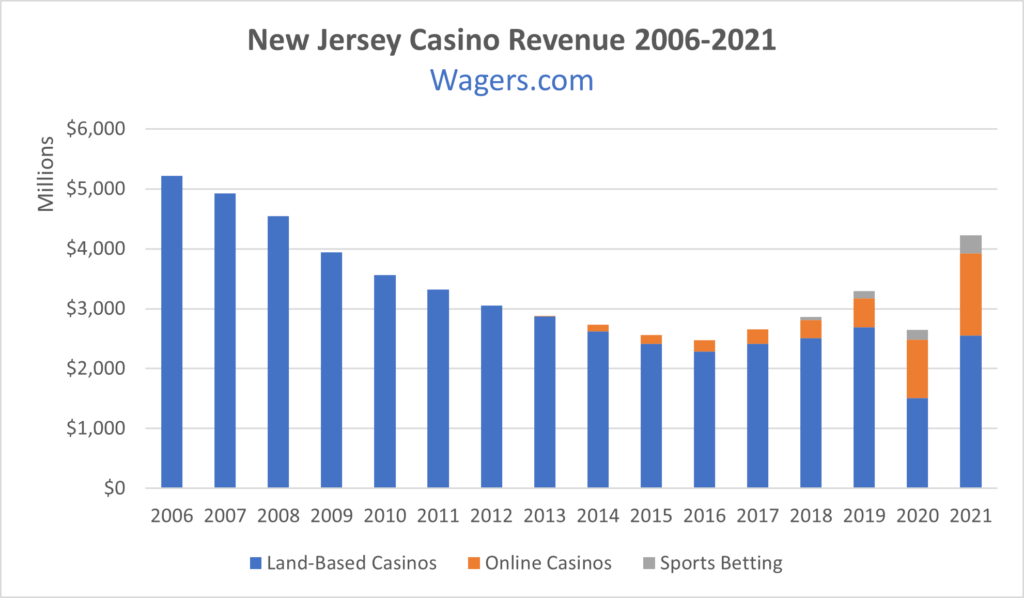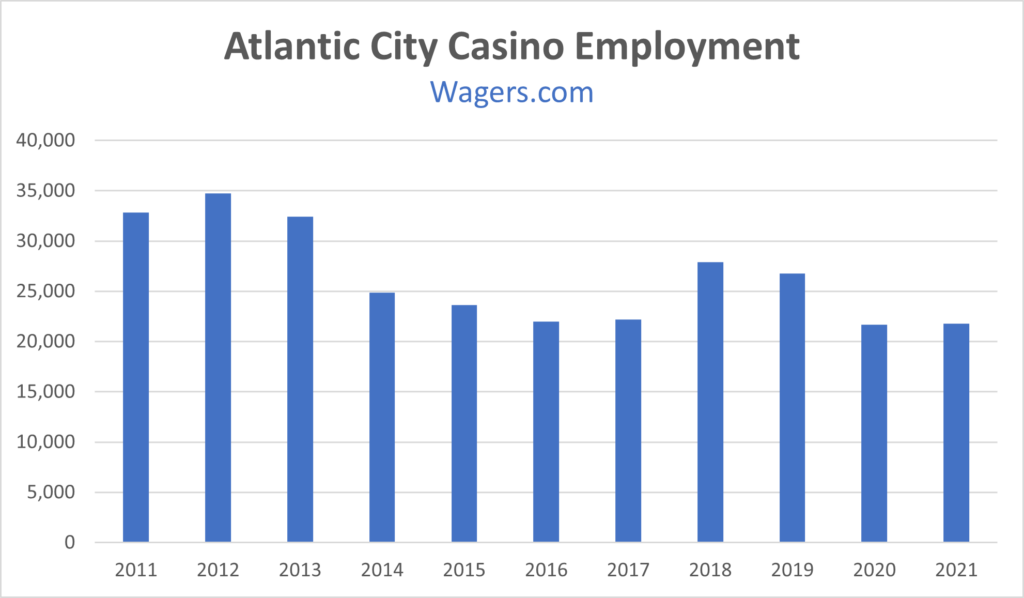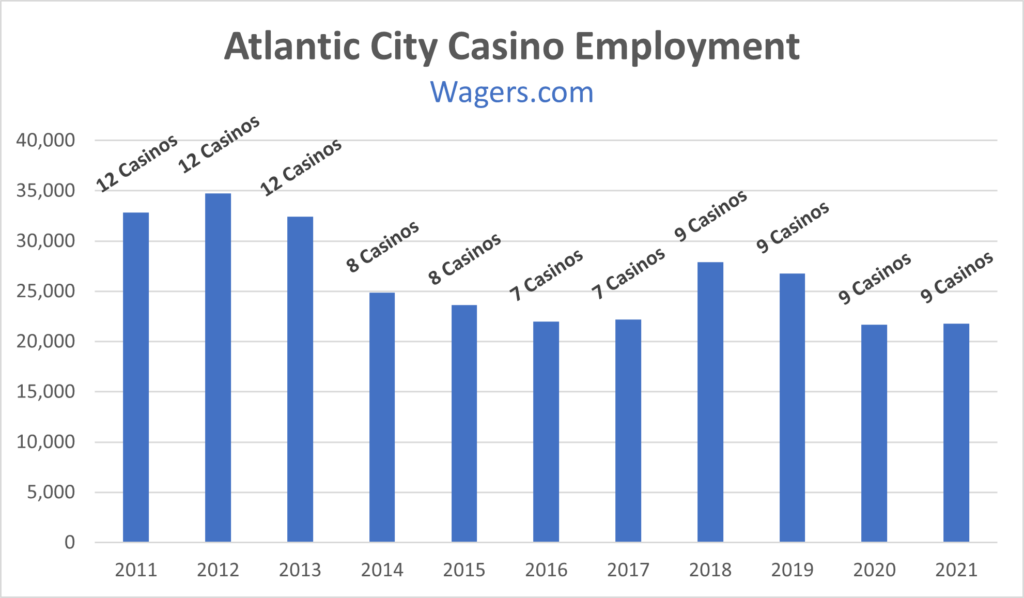When New Jersey legalized online gambling in 2013, the modern-day version of the Millerites came out of the woodwork. The anti-online gambling crowd spent years with fingers in their ears shouting, “online gambling will destroy the Atlantic City casino industry and lead to a problem gambling epidemic,” to any outlet willing to listen.
These doomsday warnings never came to pass. Instead, the evidence suggests that online gambling, and later sports betting, saved Atlantic City’s gambling industry. Despite COVID restrictions and concerns lingering, 2021 land-based casino revenue was near 2019’s six-year high.

Looking at the bigger picture, 2021 was Atlantic City’s best year since 2008. Before 2021, total gambling revenue hadn’t eclipsed $4 billion since 2008.
Most importantly, the chart shows land-based revenue was steadily growing alongside online casino gambling and sports betting pre-COVID.
Based on the early results in 2022, land-based casino revenue is up 22% through February ($396 million in 2022 compared to $308 million in 2021). If that growth holds, land-based casino revenue could eclipse $3.3 billion, which hasn’t happened since 2011.
But What About Jobs?
As the revenue argument fell apart, the online gambling Millerites were also keen on saying online gambling would decimate employment. However, without context, it’s hard to argue that the data from the NJCCC Annual Report doesn’t show a decline in casino employment.

But what happens when we add a little nuance?

Excluding the COVID years, the chart shows that Atlantic City casino employment is relatively steady on a per operational casino basis.
In 2012, the city’s twelve casinos employed an average of 2,900 people. In 2016, Atlantic City was down to seven casinos, but they had an average of 3,100 employees. 2019 showed the average employment per casino was around 2,900. Even during COVID, the average number of employees per casino was around 2,400.
Online gambling is not destroying brick & mortar casino jobs. Nor do these figures include the non-casino jobs created by online gambling firms. For example, a 2019 white paper commissioned by iDEA Growth concluded that online gambling created 3,240 indirect jobs in New Jersey.
There are jobs that iGaming creates, especially, with the authorization of “Live Dealer.” Told recently by a leading provider that a state like IN with an 80 table studio would create up to 600 jobs.
— John A Pappas (@yanni_dc) March 23, 2022
Profitable Casinos are Happy Casinos
More importantly, the city’s casinos are profitable. In 2021 only the newly purchased Bally’s AC was in the red, with the industry tallying $766.8 million in operating profit.
2021 Atlantic City gross operating profit (including digital divisions):
- Bally’s AC ($13.2 million)
- Borgata $174 million
- Caesars $62.1 million
- Golden Nugget $35.6 million
- Hard Rock $106.8 million
- Harrah’s $99.5 million
- Ocean Resort $91.2 million
- Resorts Casino $27.6 million
- Tropicana $118.7 million
- CIENJ $16.6 million
- GNOG $32.9 million
- Resorts Digital $15 million
Compare that to 2013, the last year before online gambling (online gambling launched in late-November 2013), when 12 casinos generated $235 million in profits, with five casinos in the red.
2013 Atlantic City gross operating profit:
- Atlantic Club ($12.7 million)
- Bally’s AC $33.4 million
- Borgata $121.6 million
- Caesars $69.5 million
- Golden Nugget ($10.4 million)
- Harrah’s $102 million
- Resorts Casino ($12.2 million)
- Revel ($130.2 million)
- Showboat $34 million
- Tropicana $26.5 million
- Trump Plaza ($4.7 million)
- Trump Taj Mahal $19.6 million
There Is Still Plenty of Work to Do
The Atlantic City casino industry isn’t out of the woods, but its casinos are once again profitable, and economic investments are happening up and down the Boardwalk.
Atlantic City casinos were in dire straits before the legalization and launch of online gambling. The trouble began in 2006 when the first Pennsylvania casinos opened, and revenues and profits declined in the ensuing years, only reversing as online gambling took hold.
I believe that if legalized in 2009, several Atlantic City casinos would have been spared, and it was online gambling and sports betting that brought Hard Rock and Ocean Casino to Atlantic City.
